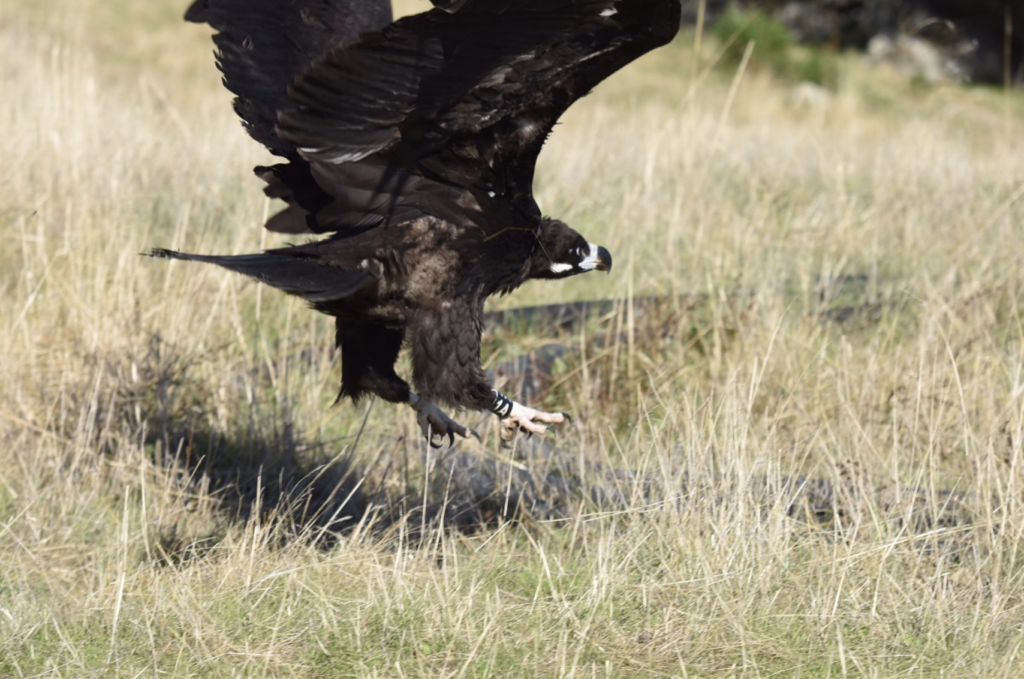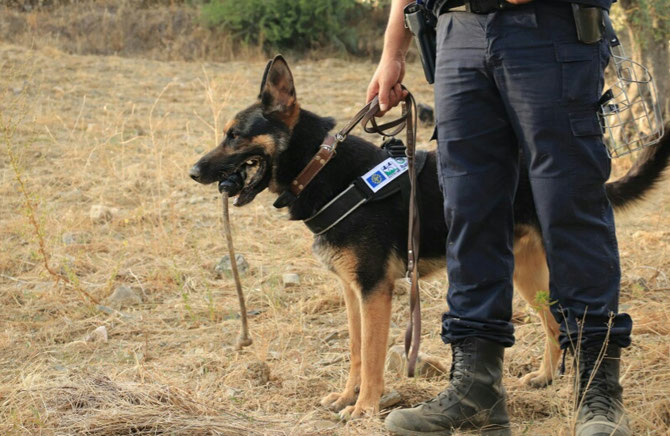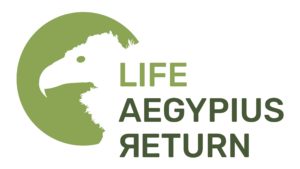LIFE AEGYPIUS RETURN
Consolidar e expandir a população de abutres-pretos em Portugal
- Página inicial
- Páginas
- Projects
- LIFE Aegypius Return
| Initiative period | 2022-2027 |
|---|---|
| Initiative area | Portugal and Western Spain |
| Target species | Cinereous Vulture |
During the 20th century, the Cinereous Vulture population faced numerous threats that led to their disappearance across much of Europe, including Portugal. However, after almost four decades of being extinct in the country, the species made a natural comeback in 2010. This remarkable milestone was made possible by the implementation of conservation measures in Spain, which resulted in the recovery of the vulture population, eventually leading to Spanish birds nesting in Portugal. Moreover, conservation efforts that favoured scavenging species in Portugal also played a significant role in facilitating the vulture's return. Despite the increasing breeding population, the Cinereous Vulture population in Portugal is still considered fragile, and its future in the country is uncertain. To ensure the species' long-term recovery, the European Union's LIFE Programme has co-funded a new project called LIFE Aegypius Return. Led by the Vulture Conservation Foundation, the project aims to secure the favourable conservation status of the Cinereous Vulture in Portugal through a comprehensive approach that includes improving its habitat and foraging conditions, limiting threats, and developing national capacities.
LEARN MORE ABOUT THE TARGET SPECIES
The LIFE Aegypius Return initiative has set out to achieve ambitious yet feasible objectives in order to restore the population of Cinereous Vultures in Portugal and western Spain. By 2027, the team aims to double the breeding population in Portugal, increase breeding success, enhance connectivity among colonies, and downgrade the national conservation status of the species in Portugal from Critically Endangered to Endangered.
REINFORCE POPULATION
The aim of the project is to facilitate the growth of the Douro Internacional SPA breeding colony in Portugal, which is currently the most vulnerable and distant. The colony initially had only two pairs at the start of the project. LIFE Aegypius Return intends to accomplish this goal through a soft release programme for Cinereous Vultures. The plan is to release approximately 20 rehabilitated Cinereous Vultures back into the wild over the project’s duration. This amounts to an average of four vultures per year, which is the typical number of individuals that enter recovery centres in Portugal annually.

BOOST BREEDING SUCCESS
The project aims to sign at least 120 management agreements with local landowners/managers, covering a total surface of around 15,000-20,000 ha in and around breeding colonies. These agreements are focused on direct habitat management for forest fire prevention, the establishment of new nest platforms, and maintaining already existing ones. The actions will be implemented in properties owned by project partners as well. The project will also construct 120 artificial nesting platforms in areas with high breeding potential and repair 105 existing natural or artificial nests. Through these actions, the project seeks to improve nest availability and safety, prevent breeding failure, and ensure habitat resilience to climate change.

MITIGATE THREATS TO REDUCE MORTALITY
The project’s success depends on reducing Cinereous Vulture mortality and addressing major threats. The team will work with hunters in 14 areas to switch to lead-free ammunition and establish 66 unfenced feeding areas to improve food availability. The project will also set up two anti-poisoning dog units to combat illegal poisoning and improve the management and investigation of wildlife crimes. Through this comprehensive approach, the project aims to mitigate the negative impact of human activity and ensure the long-term survival of the Cinereous Vulture population.

LIFE Aegypius Return is a 3.7 million project co-funded by the European Union’s LIFE Programme. Its success depends on the participation of all relevant stakeholders as well as the effective coordination and collaboration between the lead partner, the Vulture Conservation Foundation (VCF), and all local partners: Palombar – Conservação da Natureza e do Património Rural, Herdade da Contenda, Sociedade Portuguesa para o Estudo das Aves, Liga para a Protecção da Natureza, Associação Transumância e Natureza, Fundación Naturaleza y Hombre, Guarda Nacional Republicana e Associação Nacional de Proprietários Rurais e Associação Nacional de Proprietários Rurais Gestão Cinegética e Biodiversidade.



